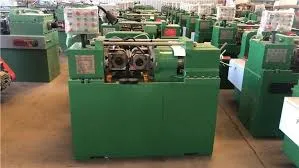
-
 Afrikaans
Afrikaans -
 Albanian
Albanian -
 Amharic
Amharic -
 Arabic
Arabic -
 Armenian
Armenian -
 Azerbaijani
Azerbaijani -
 Basque
Basque -
 Belarusian
Belarusian -
 Bengali
Bengali -
 Bosnian
Bosnian -
 Bulgarian
Bulgarian -
 Catalan
Catalan -
 Cebuano
Cebuano -
 Corsican
Corsican -
 Croatian
Croatian -
 Czech
Czech -
 Danish
Danish -
 Dutch
Dutch -
 English
English -
 Esperanto
Esperanto -
 Estonian
Estonian -
 Finnish
Finnish -
 French
French -
 Frisian
Frisian -
 Galician
Galician -
 Georgian
Georgian -
 German
German -
 Greek
Greek -
 Gujarati
Gujarati -
 Haitian Creole
Haitian Creole -
 hausa
hausa -
 hawaiian
hawaiian -
 Hebrew
Hebrew -
 Hindi
Hindi -
 Miao
Miao -
 Hungarian
Hungarian -
 Icelandic
Icelandic -
 igbo
igbo -
 Indonesian
Indonesian -
 irish
irish -
 Italian
Italian -
 Japanese
Japanese -
 Javanese
Javanese -
 Kannada
Kannada -
 kazakh
kazakh -
 Khmer
Khmer -
 Rwandese
Rwandese -
 Korean
Korean -
 Kurdish
Kurdish -
 Kyrgyz
Kyrgyz -
 Lao
Lao -
 Latin
Latin -
 Latvian
Latvian -
 Lithuanian
Lithuanian -
 Luxembourgish
Luxembourgish -
 Macedonian
Macedonian -
 Malgashi
Malgashi -
 Malay
Malay -
 Malayalam
Malayalam -
 Maltese
Maltese -
 Maori
Maori -
 Marathi
Marathi -
 Mongolian
Mongolian -
 Myanmar
Myanmar -
 Nepali
Nepali -
 Norwegian
Norwegian -
 Norwegian
Norwegian -
 Occitan
Occitan -
 Pashto
Pashto -
 Persian
Persian -
 Polish
Polish -
 Portuguese
Portuguese -
 Punjabi
Punjabi -
 Romanian
Romanian -
 Russian
Russian -
 Samoan
Samoan -
 Scottish Gaelic
Scottish Gaelic -
 Serbian
Serbian -
 Sesotho
Sesotho -
 Shona
Shona -
 Sindhi
Sindhi -
 Sinhala
Sinhala -
 Slovak
Slovak -
 Slovenian
Slovenian -
 Somali
Somali -
 Spanish
Spanish -
 Sundanese
Sundanese -
 Swahili
Swahili -
 Swedish
Swedish -
 Tagalog
Tagalog -
 Tajik
Tajik -
 Tamil
Tamil -
 Tatar
Tatar -
 Telugu
Telugu -
 Thai
Thai -
 Turkish
Turkish -
 Turkmen
Turkmen -
 Ukrainian
Ukrainian -
 Urdu
Urdu -
 Uighur
Uighur -
 Uzbek
Uzbek -
 Vietnamese
Vietnamese -
 Welsh
Welsh -
 Bantu
Bantu -
 Yiddish
Yiddish -
 Yoruba
Yoruba -
 Zulu
Zulu
types of thread rolling machine service
Types of Thread Rolling Machine Services
Thread rolling is a widely used manufacturing process for producing high-precision threaded fasteners. The efficiency, durability, and dimensional accuracy of threaded products largely depend on the quality of the thread rolling machine employed in the process. Various types of thread rolling machines are available, each designed to meet specific production requirements. Understanding the different types of thread rolling machine services can significantly impact a manufacturer’s operational efficiency.
1. Flat Die Thread Rolling Machines
Flat die thread rolling machines are among the most commonly used types in the industry. They utilize two flat dies to form threads on cylindrical workpieces through a cold working process. This type of machine is ideal for producing threads with high precision and is extensively used for smaller fasteners. The service for these machines typically includes regular maintenance, die replacement, and alignment adjustments to ensure optimal performance.
2. Planetary Thread Rolling Machines
Planetary thread rolling machines are designed for large-scale production and can handle a variety of thread sizes and shapes. They use a unique planetary motion that allows for efficient rolling of multiple threads simultaneously. This type of machine is particularly beneficial for high-volume manufacturers. Services for planetary machines often involve preventive maintenance, calibration, and software updates to optimize the parameters for different threading tasks.
types of thread rolling machine service

3. Rotary Thread Rolling Machines
Rotary thread rolling machines provide versatility in thread formation by employing rotating dies. They are particularly efficient for producing longer screws and bolts with a consistent profile. The service requirements may include adjustments to the rotational speed, die profiling, and regular inspections to ensure the integrity of the rolling process.
4. CNC Thread Rolling Machines
Computer Numerical Control (CNC) thread rolling machines bring a new level of precision and automation to the thread rolling process. These machines can produce complex thread profiles with minimal human intervention. The services for CNC machines usually entail software upgrades, detailed programming for various thread designs, and regular mechanical servicing to maintain efficiency over time.
Conclusion
The selection and maintenance of thread rolling machines are crucial for achieving high-quality threaded products. Each type of machine offers unique advantages and requires specific servicing approaches to maximize its efficiency and longevity. Manufacturers must choose the right machine type and ensure regular maintenance to stay competitive in the fast-paced manufacturing landscape. By understanding the different types of thread rolling machine services available, companies can optimize their production processes and enhance the quality of their output.
